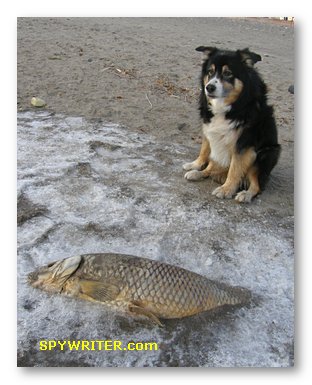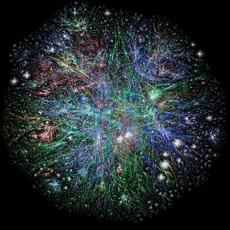 Is climate change a fact or a fad? Is global warming a conspiracy? It doesn't matter. I know that many of my actions are destructive to the environment, I can see it in my trash. So, I decided to be proactive. A couple of years ago I took the initiative to green my home, and my behavior (details were posted on my blog). Some recent changes are added below:
Is climate change a fact or a fad? Is global warming a conspiracy? It doesn't matter. I know that many of my actions are destructive to the environment, I can see it in my trash. So, I decided to be proactive. A couple of years ago I took the initiative to green my home, and my behavior (details were posted on my blog). Some recent changes are added below:- Installed a recyclable steel roof. This lowered heating and cooling electricity consumption, and I do not have to change my roof with toxic shingles every 15-20 years
- Insulated the basement
- Re-insulated the attic
- Installed ceiling fans to circulate air / help cool / distribute heat around the house
- Use a rain barrel to collect water and to water the garden
- Replaced the washing machine to low-consumption (water and electricity) front loading one
- Replaced clothes dryer to low energy one (though we use the clothesline whenever weather permits)
- Replaced the dishwasher to low energy / water consumption one (considered ditching it altogether but found out that dishwasher uses less water than hand job)
- Replaced the fridge to energy efficient one
- Use a broom to sweep the floors (instead of vacuuming)
- Changed all light bulbs to mini-spiral fluorescents
- We compost all organic material, and that which cannot be composted in our garden goes out with the city green bin program
- We recycle every scrap of paper, plastic, glass, etc…
- We buy all our veggies and fruit from a corner store that is supplied by local farmers
- I bike to my grocer 2-3 times a week instead of driving once a week to buy huge loads of stuff
- Planted numerous trees and shrubs in our yard (the kind that thrive on low water consumption)
- Planted a wall-creeping plant to help shade the house (and to hear the happy bird concerts)
- Use bio-degradable soaps and cleaning supplies such as natural soap, baking soda, vinegar, etc.
- Do not buy chemical cosmetics, only all natural
- Do not eat meat (agriculture is a devastating carbon monoxide, methane and nitrous oxide producing industry)
- Built bat houses to help combat mosquitoes (but, really, to stop my neighbors from using chemical sprays)
- Installed "leaching pit" (only in the country because city does not permit those)
- Purchase only those products that use skin tight packaging, and / or, strip it in store and make it known what I think of excess thrash
- I tell my supermarket store owner what I think of open top fridges and freezers
- In the winter we set our thermostat to 17C and put on a sweater if necessary
- Limit the use and purchase of cotton garments, using hemp instead
- Any construction involving wood uses bamboo (easily renewable)
- I tell SUV driver what I think about the size of their penises, and place literature behing their windshield wipers (see www.earthonempty.com ) BTW: I want to ditch my car, but am not convinced that I can make it without one on this continent where car is often indispensable | considered getting an electric car, but am not convinced that we need more nuclear power plants to charge them
- I do not fly anywhere on weekends, using those cheap airlines, as many Europeans do
- I do not buy bottled water
- I do not subscribe, nor buy any newspapers or magazines (although, these I ditched long before I thought of the environment)
- I take part in anti-military rallies "The world’s military burns a quarter of the world’s jet fuel and emits 70% of ozone depleting CFCs. The US military generates more hazardous waste than the five largest chemical companies combined" in Losing Control by Paul Rogers
- I refuse to submit my manuscripts by mail (insist on emailing)
- I do not print my manuscripts to edit -- use split screen instead
- Am considering writing the next novel on a typewriter (but, am worried that will use too much paper on rewrites)
- Am petitioning my local and federal government to ban recreational ATV / water scooter / snow mobile use (each releases as much CO2 as 250 cars)
The above is by no means a complete list. I'm not suggesting that I'm a saint. I know I cause damage to the environment, but I also know that the only way to stop it completely is to eradicate the entire human race. So, I do my best to leave as little footprint as possible.








 First I read a couple of works by
First I read a couple of works by 

 A biography of Witold Pilecki, one of the unsung heroes of World War Two, has been published in Italy.
A biography of Witold Pilecki, one of the unsung heroes of World War Two, has been published in Italy. in the camp. He was the author of the first report on the murder of European Jews that was passed over to the Allies. After three years in Auschwitz, Pilecki escaped from the camp, reached Warsaw, joined the Home Army’s intelligence department and formed a secret organization within the Home Army to prepare resistance against a possible Soviet occupation. He fought in the 1944 Warsaw Rising.
in the camp. He was the author of the first report on the murder of European Jews that was passed over to the Allies. After three years in Auschwitz, Pilecki escaped from the camp, reached Warsaw, joined the Home Army’s intelligence department and formed a secret organization within the Home Army to prepare resistance against a possible Soviet occupation. He fought in the 1944 Warsaw Rising.
 I read Babylon Revisited, by F. S. Fitzgerald. This autobiographical (alcoholism, Paris) short story was later turned into a movie The Last Time I Saw Paris, with Elizabeth Taylor. The movie is loosely based on the story, expands the wife character, and, for all the psychedelic colors, does a surprisingly good job at portraying a novelist, with all the ups and downs and uncertainties that go with the job.
I read Babylon Revisited, by F. S. Fitzgerald. This autobiographical (alcoholism, Paris) short story was later turned into a movie The Last Time I Saw Paris, with Elizabeth Taylor. The movie is loosely based on the story, expands the wife character, and, for all the psychedelic colors, does a surprisingly good job at portraying a novelist, with all the ups and downs and uncertainties that go with the job.



 Like most authors, James Patterson started out with one book, released in 1976, that he struggled to get published. It sold about 10,000 copies, a modest, if respectable, showing for a first novel. Last year, an estimated 14 million copies of his books in 38 different languages found their way onto beach blankets, airplanes and nightstands around the world.
Like most authors, James Patterson started out with one book, released in 1976, that he struggled to get published. It sold about 10,000 copies, a modest, if respectable, showing for a first novel. Last year, an estimated 14 million copies of his books in 38 different languages found their way onto beach blankets, airplanes and nightstands around the world.
 “For all the Kindle’s success, it remains in many ways a niche product, aimed at consumers who fit a certain narrow profile, namely avid readers. In 2007, the Associated Press reported that a quarter of Americans hadn’t read a single book in the prior year. And among those who did read that year, the average number of books read was seven. Even considering that you can get some non-book content on the Kindle, these numbers alone suggest that the market for the Kindle is limited.” From The
“For all the Kindle’s success, it remains in many ways a niche product, aimed at consumers who fit a certain narrow profile, namely avid readers. In 2007, the Associated Press reported that a quarter of Americans hadn’t read a single book in the prior year. And among those who did read that year, the average number of books read was seven. Even considering that you can get some non-book content on the Kindle, these numbers alone suggest that the market for the Kindle is limited.” From The 


 Currently, many people in Cuba have a perfect command of the Russian language. This will make it possible to establish communication beyond translations during the upcoming Book Fair, which, to pay tribute to the guest country, the Book Institute and publishing houses like Unión will put at the disposal of the public on their stands.
Currently, many people in Cuba have a perfect command of the Russian language. This will make it possible to establish communication beyond translations during the upcoming Book Fair, which, to pay tribute to the guest country, the Book Institute and publishing houses like Unión will put at the disposal of the public on their stands.
 As early as the first century B.C., volcanoes were imagined as entrances to Hell. In the “Aeneid,” the epic poem by the Italian poet Virgil, the entrance to the underworld is located in the Phlegrean Fields, a volcanic area near Naples, Italy.
As early as the first century B.C., volcanoes were imagined as entrances to Hell. In the “Aeneid,” the epic poem by the Italian poet Virgil, the entrance to the underworld is located in the Phlegrean Fields, a volcanic area near Naples, Italy.
 It seems that by law (10 USC 7524), the Secretary of Defense is authorized to "take" (or acquire) up to 25 wild marine mammals each year "for national defense purposes." These mammals — including whales, dolphins, porpoises, seals and sea lions — are used for military missions such as locating and marking underwater mines, and providing force protection against unauthorized swimmers or vehicles, among other things.
It seems that by law (10 USC 7524), the Secretary of Defense is authorized to "take" (or acquire) up to 25 wild marine mammals each year "for national defense purposes." These mammals — including whales, dolphins, porpoises, seals and sea lions — are used for military missions such as locating and marking underwater mines, and providing force protection against unauthorized swimmers or vehicles, among other things.


 Reading Resurrection. This is Leo Tolstoy's last great novel. In the author's lifetime it was more popular than Anna Karenina or War and Peace. It remains Tolstoy's strongest condemnation of social, judicial and religious conditions that were at the root of the misery suffered by the masses. Resurrection is as valid today, as it was at the time of publication, not long before the Revolution that sought to change the world and the condition of the people. Perhaps the novel should be resurrected...
Reading Resurrection. This is Leo Tolstoy's last great novel. In the author's lifetime it was more popular than Anna Karenina or War and Peace. It remains Tolstoy's strongest condemnation of social, judicial and religious conditions that were at the root of the misery suffered by the masses. Resurrection is as valid today, as it was at the time of publication, not long before the Revolution that sought to change the world and the condition of the people. Perhaps the novel should be resurrected...
 Most of the changes in network culture are subtle and only appear radical in retrospect. Take our relationship with the press. One morning you noted with interest that your daily newspaper had established a website. Another day you decided to stop buying the paper and just read it online. Then you started reading it on a mobile Internet platform, or began listening to a podcast of your favourite column while riding a train. Perhaps you dispensed with official news entirely, preferring a collection of blogs and amateur content. Eventually the paper may well be distributed only on the net, directly incorporating user comments and feedback. Or take the way cell phones have changed our lives. When you first bought a mobile phone, were you aware of how profoundly it would alter your life? Soon, however, you found yourself abandoning the tedium of scheduling dinner plans with friends in advance, instead coordinating with them en route to a particular neighbourhood. Or if your friends or family moved away to university or a new career, you found that through a social networking site like Facebook and through the every-present telematic links of the mobile phone, you did not lose touch with them.
Most of the changes in network culture are subtle and only appear radical in retrospect. Take our relationship with the press. One morning you noted with interest that your daily newspaper had established a website. Another day you decided to stop buying the paper and just read it online. Then you started reading it on a mobile Internet platform, or began listening to a podcast of your favourite column while riding a train. Perhaps you dispensed with official news entirely, preferring a collection of blogs and amateur content. Eventually the paper may well be distributed only on the net, directly incorporating user comments and feedback. Or take the way cell phones have changed our lives. When you first bought a mobile phone, were you aware of how profoundly it would alter your life? Soon, however, you found yourself abandoning the tedium of scheduling dinner plans with friends in advance, instead coordinating with them en route to a particular neighbourhood. Or if your friends or family moved away to university or a new career, you found that through a social networking site like Facebook and through the every-present telematic links of the mobile phone, you did not lose touch with them. 










 Best translated book award for fiction, longlist is
Best translated book award for fiction, longlist is 